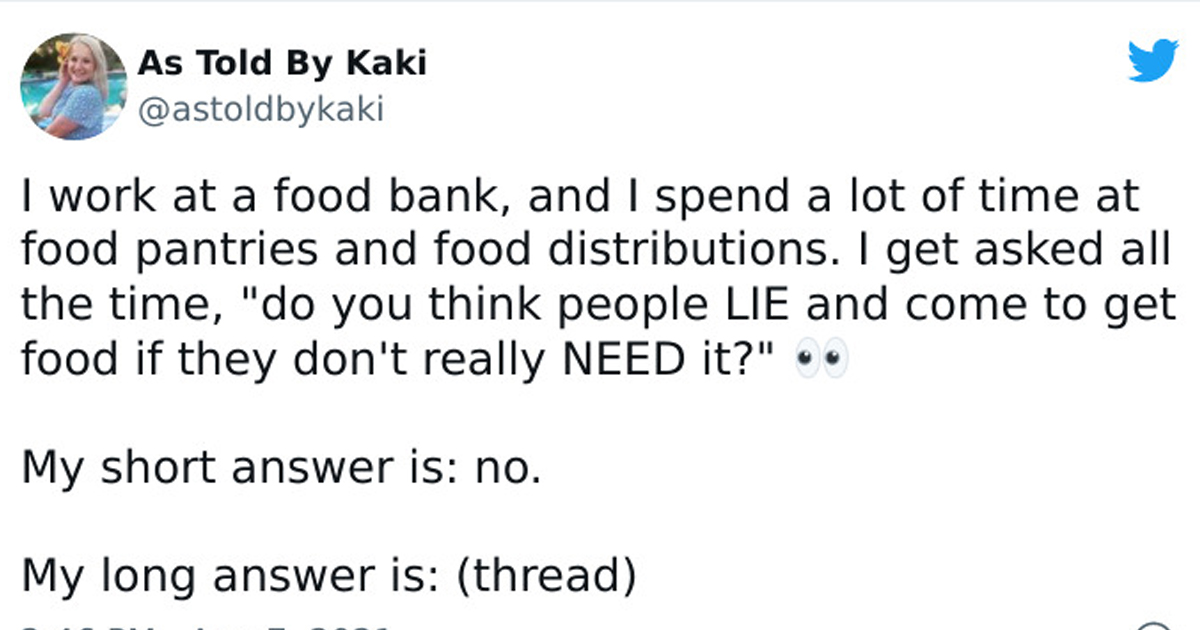Food Bank Worker’s Thread About People Lying To Get Free Food Goes Viral
What do you think: is lying to get free food at food banks an issue?
I hope you’d think “no way” because that’s the right answer — and we have proof. Thanks to @astoldbykaki on Twitter in a now-viral thread, we can understand exactly why people don’t like to get food for free at food banks.
The short answer to the question is no, that doesn’t happen. But the long answer…
Kaki starts by saying she gets this question a lot.
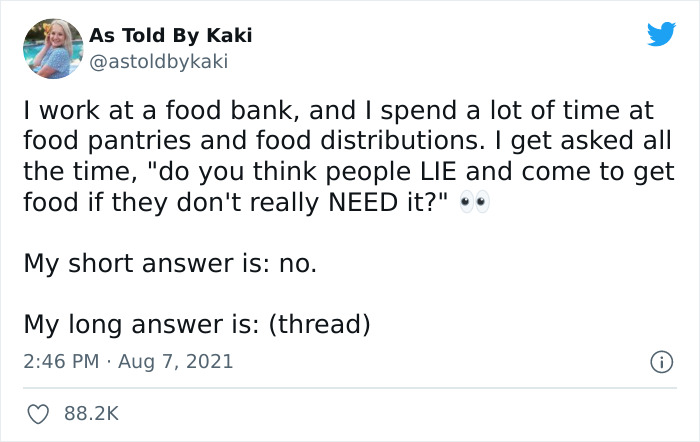
She then says that even if it does happen, they don’t care: there’s no risk of running out of food and people aren’t standing in line for hours for no reason.
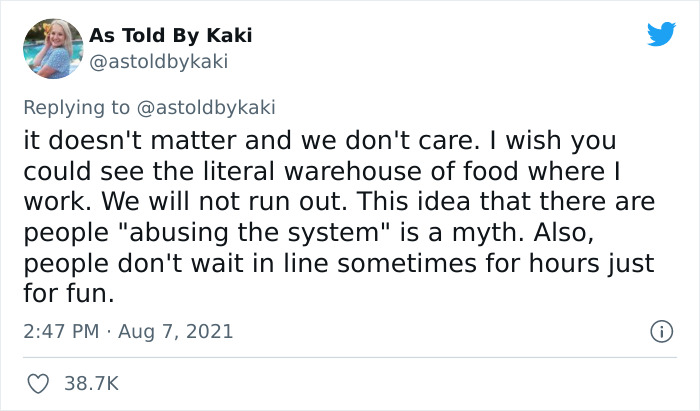
And, in fact, Kaki says, the OPPOSITE problem happens; not enough people use the resources the food bank has.
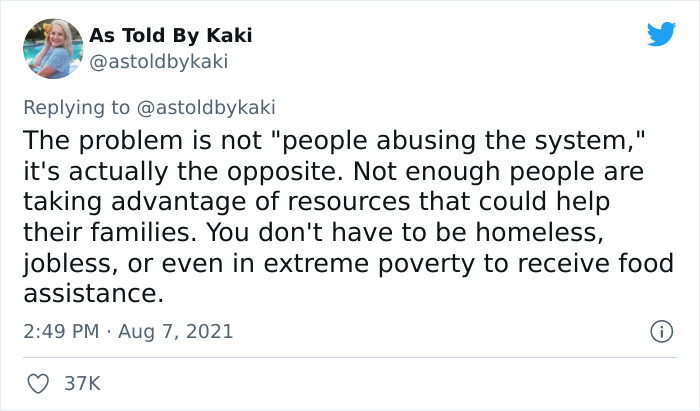
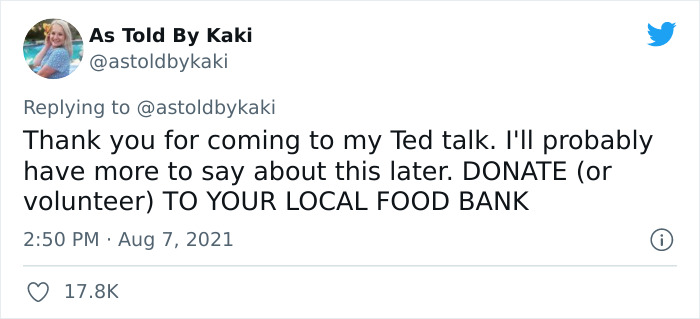
She also clarifies that “we don’t care” because it’s not important enough to police.
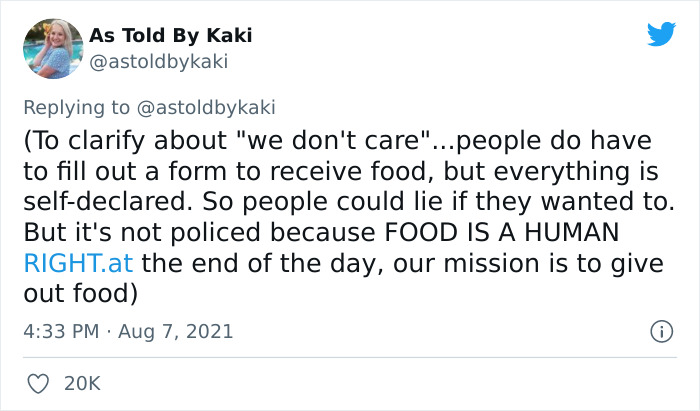
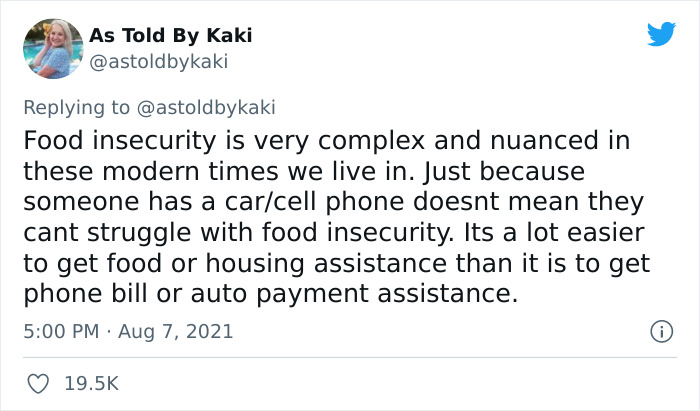
Kaki explains that food insecurity can look very differently from person to person, so “policing” applications isn’t something the food bank does.
Kaki also spoke with Bored Panda about her tweet and about food insecurity.
“I tweeted it without really putting a lot of thought behind it after helping out at a food distribution in the August Texas heat,” Kaki said. “I was tired, and someone asked me the question I so often get asked: ‘do you think people lie about needing food?’”
She elaborated, “I’ve seen people line up at food pantries as early as 4 am. I’ve seen people borrow their neighbors’ car to come pick up food for their families. I’ve seen people come on bikes, motorcycles, and on foot to carry what they can. Nobody does that for fun. It’s free food, I don’t even see how it can be abused.”
“Do some people ‘need it more than others?’ Sure, but at the end of the day, everybody deserves to eat. Some people get all of their food from pantries, and some supplement what they’ve bought from the grocery store with food pantry food. Both are perfectly fine.”
People aren’t “abusing the system”. There is MORE food to go around than people to take it.
“There are just so many misconceptions about food banks, food pantries, and receiving assistance,” said Kaki. “I’ve worked in social services capacities for a long time, both as a volunteer and an employee, and I’ve heard so many stories from people in all kinds of situations. What I’ve learned is everyone’s life is so complex, nuanced, with ups and downs and unique stories. We simply can not judge or place stigma on people who are just trying to get by, especially when it comes to something as essential as food.”
Thanks for explaining, Kaki!

